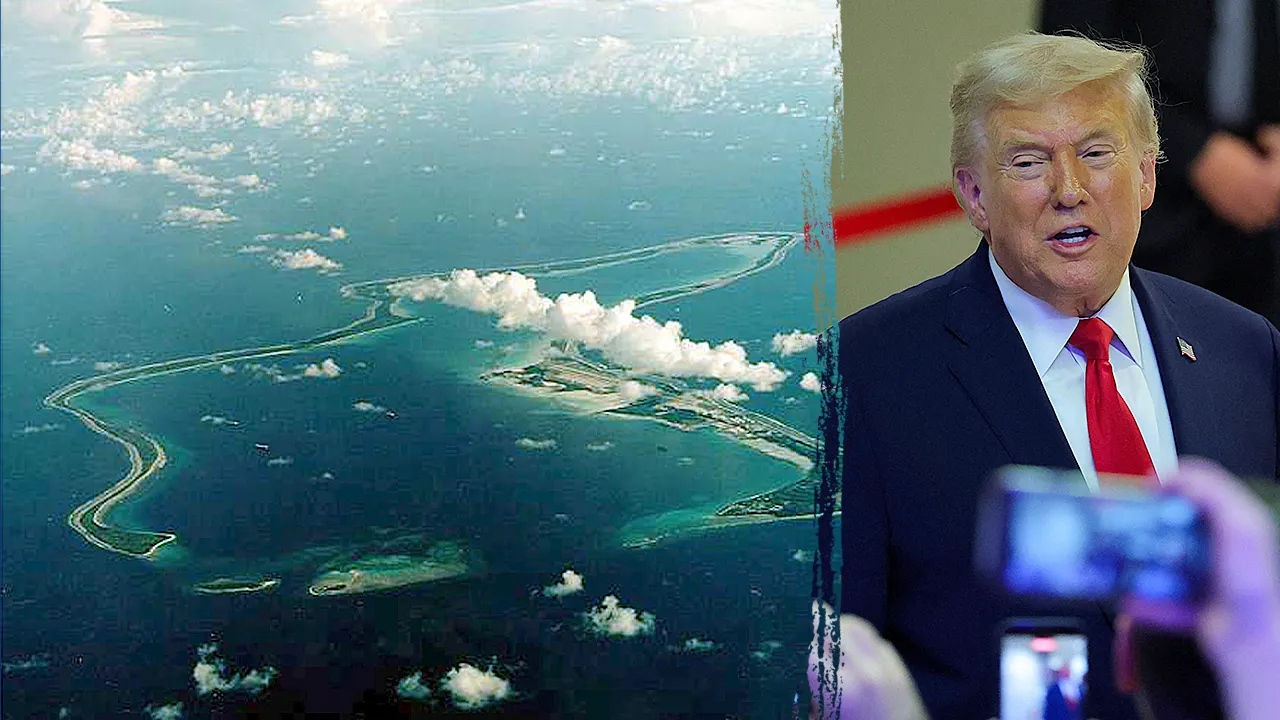WASHINGTON — James Comey is arguing the criminal case against him for allegedly lying to Congress should be tossed out on the grounds that Sen. Ted Cruz’s questioning of him was too long and confusing — and the former FBI director’s answer was true regardless.
Attorneys for Comey, 64, claimed his congressional testimony that he didn’t approve leaks to the media about his investigation of President Trump wasn’t a lie — and that the comments were made after the Texas Republican senator’s allegedly rambling question.
“The indictment conspicuously omits the lengthy, confusing questions that prompted Mr. Comey’s testimony,” the lawyers wrote in documents filed Thursday in an Alexandria, Va., court, which quoted from a Senate Judiciary Committee on Sept. 30, 2020.
The Lone Star State politician asked Comey “to recall statements he had made three years earlier and to simultaneously address statements that Senator Cruz incorrectly claimed were made by Andrew McCabe, the former Deputy Director of the Federal Bureau of Investigation,” they said.
“Viewed in context, Senator Cruz’s questions cannot form the basis for” the charges against Comey “because they were fundamentally ambiguous. And, regardless, Mr. Comey’s answers to them were literally true,” the attorneys added in the 23-page filing.
“A false-statements charge that rests on a particular interpretation of a fundamentally ambiguous question must be dismissed.”
The indictment, brought by interim US Attorney Lindsey Halligan, charged the former FBI boss with one count of making a false statement to Congress and one count of obstructing a congressional proceeding.
If convicted, Comey could serve a maximum sentence of five years in federal prison.
Comey has pleaded not guilty and claimed the case was brought against him for political reasons at President Trump’s behest in retaliation for Comey’s probe into alleged collusion between Trump’s 2016 presidential campaign and Russian officials.
Cruz at the time of the hearing was seeking to point out discrepancies in statements made by both Comey and McCabe in separate congressional and federal inquiries.
McCabe had told the Justice Department inspector general’s office that his boss at the bureau said it was “good” he was passing certain information along to The Wall Street Journal.
That information, presented in an Oct. 30, 2016, article, contained details about a pending investigation of the Clinton Foundation, and the FBI director and deputy director discussed the disclosure the day after, according to the DOJ OIG report released in February 2018.
Cruz’s meandering line of questioning was also less direct than the inquiry he referenced made by Sen. Chuck Grassley (R-Iowa) three years prior on the subject of the FBI leaks, prompting Comey’s defense team to argue for dismissal of the first count against him.
“Director Comey, have you ever been an anonymous source in news reports about matters relating to the Trump investigation or the Clinton investigation?” Grassley asked in the May 3, 2017, Senate Judiciary Committee hearing.
“Never,” Comey replied.
“Question two on [sic] relatively related, have you ever authorized someone else at the FBI to be an anonymous source in news reports about the Trump investigation or the Clinton investigation?” the Iowa Republican pressed.
“No,” Comey answered.
In 2020, he affirmed: “I stand by what, the testimony you summarized that I gave in May of 2017.”
Federal prosecutors alleged in their indictment that the “statement was false, because as JAMES B. COMEY JR. then and there knew, he in fact had authorized PERSON 3 to serve as an anonymous source in news reports regarding an FBI investigation concerning PERSON 1.”
Thursday’s motion to dismiss noted that Halligan’s team has since identified “PERSON 1” as Hillary Clinton and “PERSON 3” as Daniel Richman, a Columbia Law School professor and former prosecutor — not McCabe.
“Senator Cruz’s questions are fundamentally ambiguous because people of ordinary intellect would not be expected to understand that he meant to ask a broad question about Mr. Comey’s interactions with anyone at the FBI—including Daniel Richman—during a colloquy focused on Mr. McCabe,” wrote defense attorney Jessica Carmichael.
“On the contrary, a reasonable person readily would have understood Senator Cruz to be asking only whether Mr. Comey had specifically authorized Mr. McCabe to be an anonymous source in news reports.”
Carmichael also claimed the second count against Comey should be tossed out because the charge “rests on the same false statements as Count One.”
Some lawyers have suggested that a superseding indictment could be forthcoming in the case to provide more proof that Comey lied — but the defense also addressed that eventuality in their filing.
“The government cannot try Mr. Comey on cherry-picked statements from a four-hour hearing without specifying which statement it believes is false or misleading,” Carmichael added. “And surely the government does not believe that it may secure an indictment based on one statement placed before the grand jury and then switch to a different statement at trial.”
In a separate filing, Comey’s team asked for access to the grand jury proceedings.
Other court papers requested a video clip of Cruz’ question as an exhibit to support their motion to dismiss the two charges Comey faces: lying to Congress and obstruction of justice.
Comey — who is out free on his own recognizance — is set to go on trial on Jan. 5, 2026 but he’s seeking to throw out the claims on multiple grounds before then — including that Eastern District of Virginia US Attorney Lindsey Halligan, Trump’s former personal lawyer, was allegedly wrongly appointed to the post by him.
Reps for the US Attorney’s Office in the Eastern District of Virginia did not respond to a request for comment.














